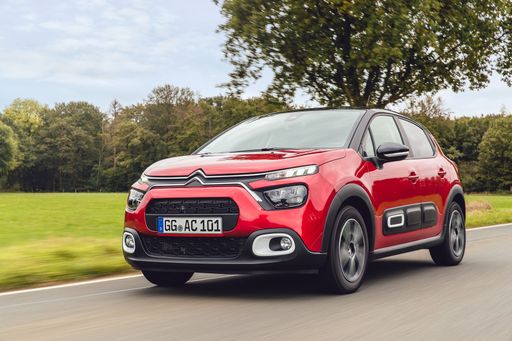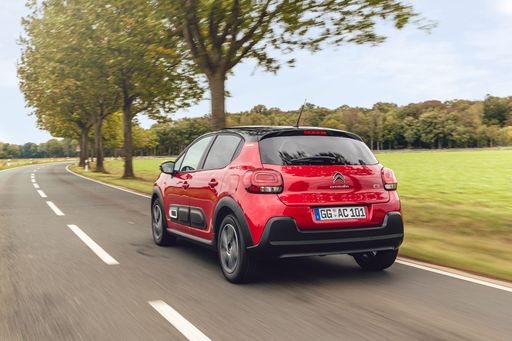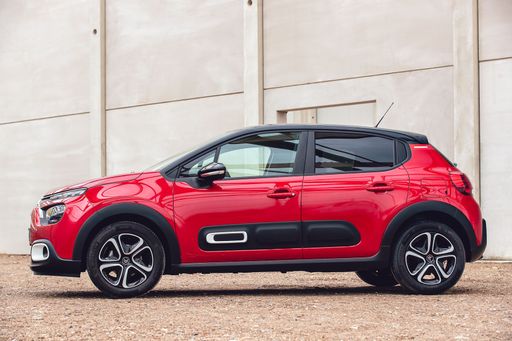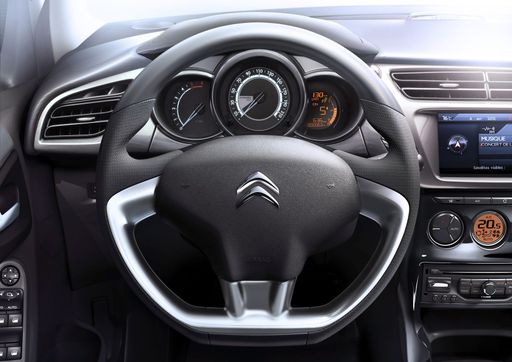Citroen C3 vs Nissan Leaf – Which one offers the better deal?
Compare performance, boot capacity, efficiency and price at a glance.
Find out which car is the better choice for you – Citroen C3 or Nissan Leaf?
Costs and Efficiency:
When it comes to price and running costs, the biggest differences usually appear. This is often where you see which car fits your budget better in the long run.
Citroen C3 has a significantly advantage in terms of price – it starts at 13700 £, while the Nissan Leaf costs 30800 £. That’s a price difference of around 17066 £.
In terms of energy consumption, the advantage goes to the Citroen C3: with 16.60 kWh per 100 km, it’s minimal more efficient than the Nissan Leaf with 16.70 kWh. That’s a difference of about 0.10000 kWh.
As for range, the Nissan Leaf performs slightly better – achieving up to 385 km, about 61 km more than the Citroen C3.
Engine and Performance:
Under the bonnet, it becomes clear which model is tuned for sportiness and which one takes the lead when you hit the accelerator.
When it comes to engine power, the Nissan Leaf has a convincingly edge – offering 217 HP compared to 113 HP. That’s roughly 104 HP more horsepower.
In acceleration from 0 to 100 km/h, the Nissan Leaf is decisively quicker – completing the sprint in 6.90 s, while the Citroen C3 takes 9.90 s. That’s about 3 s faster.
In terms of top speed, the Citroen C3 performs slightly better – reaching 183 km/h, while the Nissan Leaf tops out at 157 km/h. The difference is around 26 km/h.
There’s also a difference in torque: Nissan Leaf pulls distinct stronger with 340 Nm compared to 205 Nm. That’s about 135 Nm difference.
Space and Everyday Use:
Whether family car or daily driver – which one offers more room, flexibility and comfort?
Both vehicles offer seating for 5 people.
In curb weight, Citroen C3 is evident lighter – 1226 kg compared to 1580 kg. The difference is around 354 kg.
In terms of boot space, the Nissan Leaf offers clearly perceptible more room – 394 L compared to 310 L. That’s a difference of about 84 L.
In maximum load capacity, the Citroen C3 performs noticeable better – up to 1220 L, which is about 430 L more than the Nissan Leaf.
When it comes to payload, Citroen C3 barely noticeable takes the win – 423 kg compared to 415 kg. That’s a difference of about 8 kg.
Who comes out on top?
Overall, the Nissan Leaf shows itself to be only a minor advantage and secures the title of DriveDuel Champion.
It convinces with the more balanced overall package and proves to be the more versatile choice for everyday use.
 @ Nissan Motor Corporation
@ Nissan Motor Corporation
Nissan Leaf
Citroen C3
The Citroën C3 is a cheeky little city car that turns heads with its bold, quirky styling and a surprisingly comfy, well-thought-out interior. It’s an ideal companion for urban life — easy to park, friendly to drive and built to make everyday trips feel a bit more fun without breaking the bank.
details @ Citroën / Stellantis Media
@ Citroën / Stellantis Media
 @ Citroën / Stellantis Media
@ Citroën / Stellantis Media
 @ Citroën / Stellantis Media
@ Citroën / Stellantis Media
 @ Citroën / Stellantis Media
@ Citroën / Stellantis Media
Nissan Leaf
The Nissan Leaf is a practical, easygoing electric hatch that turns daily commutes into a quiet, effortless affair while offering more cabin space than it lets on. It’s a sensible, wallet-friendly step into electrification for buyers who value comfort and simplicity over sporty drama, though those chasing long-distance thrills might look elsewhere.
details @ Nissan Motor Corporation
@ Nissan Motor Corporation
 @ Nissan Motor Corporation
@ Nissan Motor Corporation
 @ Nissan Motor Corporation
@ Nissan Motor Corporation
 @ Nissan Motor Corporation
@ Nissan Motor Corporation
 @ Citroën / Stellantis Media
@ Citroën / Stellantis Media
|
 @ Nissan Motor Corporation
@ Nissan Motor Corporation
|
|
|
|
Costs and Consumption |
|
|---|---|
|
Price
13700 - 23800 £
|
Price
30800 - 37200 £
|
|
Consumption L/100km
5 - 5.6 L
|
Consumption L/100km
-
|
|
Consumption kWh/100km
16.6 - 17.2 kWh
|
Consumption kWh/100km
16.7 - 17.8 kWh
|
|
Electric Range
206 - 324 km
|
Electric Range
270 - 385 km
|
|
Battery Capacity
-
|
Battery Capacity
39 - 59 kWh
|
|
co2
0 - 126 g/km
|
co2
0 g/km
|
|
Fuel tank capacity
44 L
|
Fuel tank capacity
-
|
Dimensions and Body |
|
|---|---|
|
Body Type
SUV
|
Body Type
Hatchback
|
|
Seats
2 - 5
|
Seats
5
|
|
Doors
5
|
Doors
5
|
|
Curb weight
1226 - 1518 kg
|
Curb weight
1580 - 1756 kg
|
|
Trunk capacity
310 L
|
Trunk capacity
385 - 394 L
|
|
Length
4015 mm
|
Length
4490 mm
|
|
Width
1755 mm
|
Width
1788 mm
|
|
Height
1567 mm
|
Height
1540 - 1545 mm
|
|
Max trunk capacity
1220 L
|
Max trunk capacity
790 L
|
|
Payload
227 - 423 kg
|
Payload
384 - 415 kg
|
Engine and Performance |
|
|---|---|
|
Engine Type
Petrol, Electric, Petrol MHEV
|
Engine Type
Electric
|
|
Transmission
Manuel, Automatic
|
Transmission
Automatic
|
|
Transmission Detail
Manual Gearbox, Reduction Gearbox, Dual-Clutch Automatic
|
Transmission Detail
Reduction Gearbox
|
|
Drive Type
Front-Wheel Drive
|
Drive Type
Front-Wheel Drive
|
|
Power HP
101 - 113 HP
|
Power HP
150 - 217 HP
|
|
Acceleration 0-100km/h
9.9 - 12 s
|
Acceleration 0-100km/h
6.9 - 7.9 s
|
|
Max Speed
125 - 183 km/h
|
Max Speed
144 - 157 km/h
|
|
Torque
120 - 205 Nm
|
Torque
320 - 340 Nm
|
|
Number of Cylinders
3
|
Number of Cylinders
-
|
|
Power kW
74 - 83 kW
|
Power kW
110 - 160 kW
|
|
Engine capacity
1199 cm3
|
Engine capacity
-
|
General |
|
|---|---|
|
Model Year
2024 - 2025
|
Model Year
2019
|
|
CO2 Efficiency Class
D, A, C
|
CO2 Efficiency Class
A
|
|
Brand
Citroen
|
Brand
Nissan
|
What drive types are available for the Citroen C3?
The Citroen C3 is offered with Front-Wheel Drive.
The prices and data displayed are estimates based on German list prices and may vary by country. This information is not legally binding.
